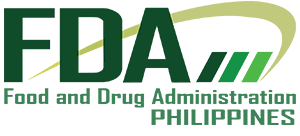All comments may be sent at [email protected]. The deadline for submission of comments is on 23 June 2023.
I. RATIONALE
Republic Act (RA) No. 9711, otherwise known as the “Food and Drug Administration (FDA) Act of 2009”, mandates the FDA to regulate and subsequently issue appropriate authorizations to establishments engaged in the manufacture, distribution, importation, exportation and retailing of health products, among others.
Article I Section 6 (Requirements for Every Incoming Shipment of Health Products) of the Book II of the Implementing Rules and Regulation (IRR) of RA No. 9711, states that “The FDA in coordination with the Bureau of Customs, Bureau of Quarantine and other concerned agencies is mandated to undertake and adopt measures relating to importation of health products such as, but not limited to, sampling and examination, in accordance with relevant existing laws and regulations, of every incoming shipment of health products”. The FDA hereby issued FDA Memorandum Circular (FMC) No. 2013-032 wherein a valid License to Operate (LTO) and Certificate of Product Registration (CPR) are required for the release of drug products. However, there is a need to strengthen market control within the distribution chain through additional measures to ensure that the public only receive quality-assured drug products. The infiltration of substandard and falsified drug products into the supply system shall be prevented through risk-based surveillance scheme and rigorous control. Therefore, as part of the FDA’s powers and functions under RA No. 9711, issuance of appropriate authorization such as import/export clearance is necessary to strengthen the FDA’s overall market surveillance and control regulatory function.
In the interest of public health, import/export activities related to drug products need to be controlled and under the proper oversight of the FDA. Issuance of this guidelines is imperative to ensure the consistency and effectiveness of these regulatory activities.
II. OBJECTIVES
This Circular aims to achieve the following:
A. Provide detailed guidelines and clear procedures in the issuance of Clearance for Customs Release (CFCR) for finished drug products and raw materials.
B. Conduct inspection of entry/exit ports authorized by the Bureau of Customs (BOC) for finished drug products and raw materials.
III. SCOPE
This Circular shall apply to all FDA-licensed drug establishments [Manufacturer/Trader/Distributor (Importer/Exporter)] involved in the manufacture, importation and exportation of finished drug products and raw materials intended for distribution.
This Circular shall not cover drug products and raw materials used in clinical trials/product development/research, drug products for personal use, donations, and under Compassionate Special Permit, and shall be processed based on existing rules and regulations.
IV. DEFINITION OF TERMS
A. Air Way Bill (AWB) refers to a transport document for airfreight, used by airlines and international freight forwarders, which specifies the holder or consignee of the bill who has the right to claim delivery of goods when they arrive at the port of destination. It is a contract of carriage that includes carrier conditions, such as limits of liability and claims procedures. In addition, it contains transport instructions to airlines and carriers, a description of the goods, and applicable transportation changes. (CMO No. 06-2018)
B. Bill of Lading (B/L) refers to a transport document issued by shipping lines, carriers, and international freight forwarders or non-vessel operating common carriers for water-borne freight. It is a contract of carriage between the carrier and the shipper which defines the liabilities of each party. The holder or consignee of the bill has the right to claim delivery of the goods at the port of destination. It may refer to a Master Bill of Lading or a House Bill of Lading. (CMO No. 06-2018)
C. Bureau of Customs (BOC) refers to the national agency under the Department of Finance in charge of imports, exports, and foreign trade.
D. Clearance for Customs Release (CFCR) refers to a document issued by the
FDA certifying that the health product and establishment comply with the FDA regulations and thus recommending the release of the regulated imports.
E. Commercial Invoice refers to a legal document between the supplier and the customer that clearly describes the sold goods, the amount due on the customer. (CMO No. 06-2018)
F. Drug, drug product, pharmaceutical product, or medicinal product refers to chemical compound(s) or biological substance(s), other than food, intended for use in the treatment, prevention, or diagnosis of disease in humans or animals, including the following:
1. any article recognized in official pharmacopoeias and formularies, including official homeopathic pharmacopoeias, or any documentary supplement to any of them, which are recognized and adopted by the FDA;
2. any articles intended for use in the diagnosis, cure, mitigation, treatment, or prevention of disease in man or other animals;
3. any article, other than food, intended to affect the structure or any function of the body of human beings or animals; or
4. any articles intended for use as a component of articles, specified in clauses (1), (2), or (3) not including devices or their components, parts or accessories.
5. herbal or traditional drugs as defined in R.A. No. 9502, known as the “Universal Accessible, Cheaper and Quality Medicines Act”
G. Drug Distributor/Importer/Exporter refers to any establishment that imports or exports raw materials, active ingredients and/or finished products for its own use or for wholesale distribution to other establishments or outlets.
H. Drug Manufacturer refers to any establishment engaged in operations involved in the production of a drug, including propagation, processing, compounding, finishing, filling, packing, repacking, altering, ornamenting and labelling with the end in view of storage, distribution or sale of the product: provided that for the purpose of this regulation the compounding and filling of prescriptions in drugstores and hospital pharmacies shall not be considered as production operations.
I. Drug Trader refers to any establishment which is a registered owner of a drug product and the formulation and procures the raw materials and packing components, and provides the production monographs, quality control standards and procedures, but subcontracts the manufacture of such product to a licensed manufacturer. In addition, a trader may also engage in the distribution and/or exportation in wholesale of its own drug products and importation of raw materials for the production by its contract manufacturer.
J. Finished Drug Product refers to a drug product that has undergone all stages of production and quality control, including packaging in its final container and labeling.
K. Packing List refers to the itemized list of articles usually included in each shipping package, giving the quantity, description and weight of the contents. (CMO No. 06-2018)
L. Proforma Invoice refers to a draft invoice given by the shipper to a recipient/consignee prior to the shipment of goods. It provides information on the nature, quantity, value and weight of goods to be imported.
M. Raw Material refers to all substances whether active or excipients that are employed in the processing of a finished drug product. (AO No. 103 s. 2002)
V. GENERAL GUIDELINES
A. All manufacturers, traders and distributors of drug products and raw materials shall secure a Clearance for Customs Release (CFCR) from the FDA prior to importation/exportation.
B. The CFCR shall be issued to the Marketing Authorization Holder (MAH) with valid License to Operate (LTO) as manufacturer/trader/distributor and valid only for the specific importation/exportation of drug products with valid Certificate of Product Registration (CPR) and to manufacturers, traders and distributors with valid LTO that imports/exports raw materials.
C. The applicant shall submit documentary requirements to support the application for CFCR through the FDA eServices Portal System. The CFCR shall be valid only for a period of three (3) months from date of issuance and good only for a single shipment.
D. Importation/Exportation of drug products and raw materials shall be channeled exclusively through the identified Bureau of Customs (BOC) port listed in Annex A. The applicant shall indicate their chosen port of entry/exit in the application.
E. Facilities of BOC ports shall be inspected periodically by the FDA to ensure compliance with Good Storage Practices (GSP) and other relevant existing rules and regulations.
F. All applications shall be filed as early as one month prior to the arrival/departure of the shipment to/from the Philippines.
G. All applications shall be pre-assessed with regard to completeness.
H. All applications shall be evaluated and processed by the FDA within 5 working days upon receipt of payment.
I. The list of drug products and raw materials issued with CFCR shall be posted in the FDA Verification Portal System.
J. The FDA shall conduct post-marketing surveillance activities including but not limited to collection of drug product samples for testing, inspection of involved establishments/ facilities, collaboration with BOC and Law Enforcement Agencies (LEAs) and take necessary regulatory actions to violative products and establishments.
VI. SPECIFIC GUIDELINES
A. Documentary Requirements
The required details of the LTO, CPR and GMP Certificate issued by the FDA shall be encoded, and the following documentary requirements both for import and export shall be uploaded to the FDA eServices Portal System:
1. Drug Product
a. Certificate of Analysis (COA)
b. Proforma Invoice/Commercial Invoice
c. Bill of Lading/Airway Bill
d. Packing list
2. Raw Materials
a. GMP Certification for manufacturer issued by the regulatory authority of the country of manufacture/origin for imported raw material
b. Certificate of Analysis (COA)
c. Proforma Invoice/Commercial Invoice
d. Bill of Lading/Airway Bill
e. Packing list
B. Application Process
Guidelines on CFCR using eServices Portal System are provided in Annex B and procedure on the Use of the FDA eServices Portal System for CFCR is available in Annex C of this Circular.
C. Post-Approval Commitments
All manufacturers, traders and distributors with approved CFCR shall be required to submit the following, through the eServices Portal, as post-approval commitments:
1. Date of Arrival of the Finished Drug Products/Raw Materials
2. Distribution Records (Name, address of the user/buyer)
3. Delivery Receipts and Sales invoices
No succeeding request for CFCR will be issued unless the abovementioned post-approval commitments are submitted and complied with.
D. Fees
The appropriate fees as specified under existing regulations shall apply, including a Legal Research Fee (LRF), following AO No. 50 s. 2001 or any amendment or latest issuance thereafter.
VII. IMPLEMENTATION REVIEW
Within three (3) years of its implementation, this Circular shall be reviewed and evaluated to determine whether the policy’s objectives, impact, and effectiveness are achieved.
VIII. PENALTY CLAUSE
Violations of this Circular shall warrant the application of the penalties under the applicable provisions of RA No. 9711 and the Implementing Rules and Regulations thereof.
IX. SEPARABILITY CLAUSE
If any provision in this Circular, or application of such provision to any circumstances, is held invalid, the remainder of the provisions in this Circular shall not be affected.
X. REPEALING CLAUSE
FDA Memorandum Circular No. 2013-032 and any other circular, memorandum, issuance, rule and regulation which are inconsistent with the provisions of this Circular is hereby modified and repealed accordingly.
XI. EFFECTIVITY DATE
This Circular shall take effect fifteen (15) calendar days after publication in one (1) newspaper of general circulation and after submission to University of the Philippines, Office of the National Administrative Register (UP-ONAR).



